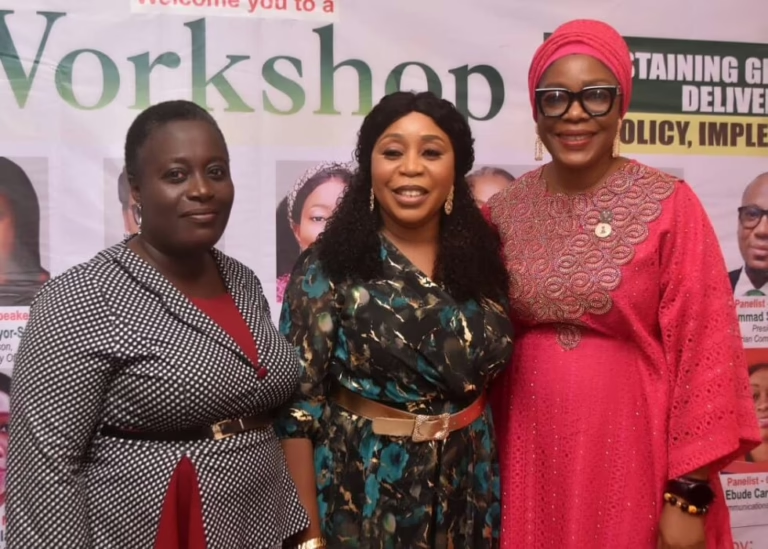Experts in infrastructure, policymakers, scholars, and development specialists have underscored the critical importance of incorporating women’s perspectives in Africa’s infrastructure projects. They warn that neglecting this inclusion could hinder sustainable development and exacerbate existing inequalities.
This urgent message emerged during a high-level forum titled “Advancing Gender-Inclusive Infrastructure Delivery in Africa: Policies, Execution & Partnerships,” organized by Women in Construction and Architecture (WICA) alongside the Centre for Housing and Sustainable Development (CESD) and the ARUA Centre of Excellence for Urbanisation and Habitable Cities at the University of Lagos.
The event convened representatives from Nigeria, Zambia, Malawi, Ghana, Tanzania, and Cameroon to deliberate on effective approaches for embedding gender considerations throughout infrastructure planning, design, procurement, and policy frameworks.
In her opening remarks, Dr. Olajumoke Akiode, WICA President and event convener, highlighted that infrastructure inherently reflects gendered experiences and must be tailored to address the distinct needs of men and women. She emphasized the workshop’s goal to identify practical methods for implementing gender policies and to build lasting partnerships that ensure gender-responsive infrastructure delivery across the continent.
“It is imperative that we develop robust monitoring, evaluation, and benchmarking tools to guarantee that gender-focused infrastructure initiatives in Nigeria and Africa are supported by sound policies, collective commitment, and enduring collaborations,” Dr. Akiode urged, advocating for a united continental effort.
Chioma Wogu-Ogbonna, Director at the Federal Ministry of Housing and Urban Development, FCT Abuja, stressed the necessity of closing the gap between policy formulation and on-the-ground execution. She advocated for inclusive design processes that actively engage women, procurement policies that reserve a portion of contracts for women-led enterprises, and specialized training programs for engineers, architects, and decision-makers.
“Involving women in decisions such as the placement of rural bus stops has led to a marked decrease in harassment and enhanced mobility,” she noted, calling on governments to institutionalize such participatory planning practices.
Professor Timothy Nubi, Director of the Centre for Housing and Sustainable Development and ARUA Centre of Excellence for Urbanisation and Habitable Cities at the University of Lagos, highlighted the pressing need for gender-aware infrastructure development in Nigeria. He pointed out that while infrastructure is a cornerstone of economic progress, its benefits are often unevenly distributed, disproportionately disadvantaging women and girls.
“Incorporating gender perspectives into infrastructure planning is not merely a matter of equity; it is fundamental to fostering economic empowerment, safety, and social inclusion,” Prof. Nubi asserted.
He recommended strategies such as prioritizing women’s safety in infrastructure design, encouraging their active involvement in project development, offering capacity-building opportunities, and systematically assessing the social impacts of infrastructure projects.
“Gender-sensitive infrastructure is essential for creating inclusive urban environments and enhancing national productivity,” he added.
Vincent Barrah, President of the Federation of Construction Industry, also voiced strong support for gender-inclusive infrastructure development across Africa. Participants agreed that governments must enact supportive policies and allocate sufficient budgets, the private sector should champion gender-smart investments, and civil society must ensure accountability among all stakeholders.
Barrah acknowledged progress in gender policy adoption, noting that donor-funded initiatives increasingly emphasize inclusion and advocacy efforts are gaining momentum.
“However, a significant gap remains between policy and practice. Too often, gender inclusivity is treated as a mere formality rather than a guiding principle throughout project design, budgeting, implementation, and evaluation. Infrastructure that overlooks women is inherently biased, exclusionary, and perpetuates inequality,” he cautioned.
Dr. Chishimba Kathryn Mufana, Coordinator of WICA Zambia Chapter, highlighted the value of regional cooperation and knowledge sharing to address shared challenges in architecture and engineering.
From Tanzania, Ester Christopher shared insights on the country’s updated Construction Industry Policy 2025, which now explicitly incorporates women’s participation in procurement processes.
“Women contractors are increasingly securing significant projects, demonstrating that policy reforms can create tangible opportunities,” she remarked.
Catherine Sani, immediate past President of the Malawi Institute of Architecture, pointed out that despite the existence of national gender policies, their enforcement within the construction sector remains inadequate, leading to suboptimal outcomes for women.
Ing. Naki, President of Women in Engineering Ghana, called for the development of gender-responsive frameworks tailored specifically to infrastructure sectors.
“Broad gender policies are insufficient. We require specialized frameworks for transport, water, energy, and housing sectors,” she insisted.
Delegates from Cameroon shared experiences illustrating how the underrepresentation of women in planning processes continues to marginalize entire communities.






















